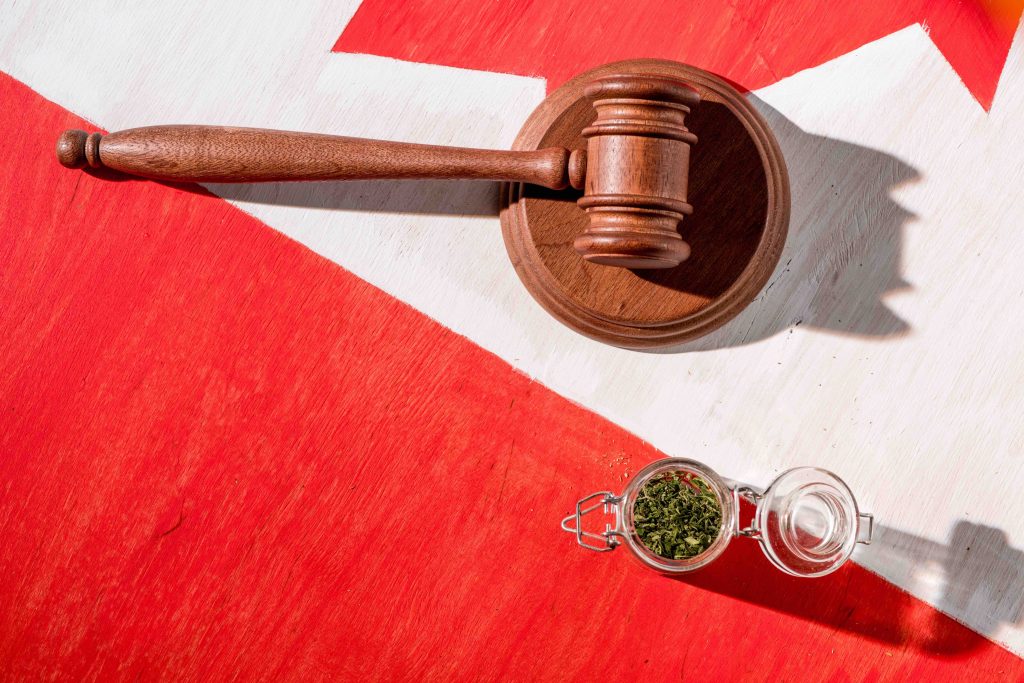
Features
Opinion
Business
Legal
Regulations
Vantage Point: Hello, Ottawa
Contributing to Canada’s economic renewal
March 5, 2021 By George Smitherman
 Photo: Adobe Stock
Photo: Adobe Stock Like many people, I treated the end of 2020 with a sigh of relief as the new year was like the symbolic turning of the corner. Just as the seasons come and go in Canada, I predict that the season of vaccine scarcity will give way to sufficiency before too long. We all just have to hang on a little while longer.
For those of us lucky enough to be in the cannabis industry, we’ve been working at breakneck speed in an emerging space for so long we don’t even know what normal looks like, meaning that we managed all the tough stuff that 2020 and COVID-19 tossed our way. After all, thriving in an intensely regulated and competitive industry hones one’s survival instincts.
The year 2020 was whencannabis was viewed as essential in Canada. And just as elsewhere, the United Nations emerged to acknowledge the medicinal benefits of cannabis – while the U.S. seems to have concluded cannabis is socially acceptable.
Personally, I take a lot of pride in Canada’s global leadership in cannabis. It’s not just for the significant and politically bold step of legalization that Mr. Trudeau led and that Parliament took, but historic efforts by passionate cannabis advocates who blazed trails and won constitutional protections for cannabis as a medicine.
Global predictions for the cannabis market are eye-popping and that’s powered by recognizing the potential of the whole plant, including CBD. Within that emerging global market, Canada should be well-placed to succeed if not dominate, yet I argue that Canada is being held back by a reluctance to lead: a sector regulated by many and championed by none.
Put another way, our sector has a lot to contribute to economic renewal but there are some series of roadblocks. Among the many examples is an export permitting process that is slow and lacks the flexibility to support repeat client shipments, and the absence of a regulatory model for CBD that stymies job-supporting exports despite global demand for our value-added products.
Rather than leveraging our first-mover advantage as a matter of economic policy and to support many thousands of new jobs, governments remain preoccupied with and still stigmatize the THC characteristic of the plant, making Canada loathe to promote our companies, people and products. Meanwhile, late-comer nations like Australia are issuing export permits at lightning speed to the advantage of their industry.
What is the source of the reluctance beyond navigating the social licence with Canadians who have shown unwavering support for legalization at all stages?
Lots of people in our industry are looking to the statutory review of the Cannabis Act to extract an ounce or two of relief from things like restrictions that make it tough to communicate the attributes of our cannabis products with consumers and, therefore, to build any connection beyond THC levels.
While the statutory review of the legislation is going to be important, many of the challenges we face call for more urgent and timely action. The review, to be launched this fall, will likely take at least three years before it is voted on by Parliament. Much of the industry as we know it now will disappear long before that if we fail to bring urgent attention to industry challenges and begin to promote opportunities.
As a former health regulator, I understand the challenge of simultaneously serving as an industry champion. One thing that has compounded that challenge, and is a fundamental unfairness, is the broad extension of laws and regulations that were written for tobacco. The Smoke Free Ontario Act, for example, which stood in my name as Ontario Health Minister, was conceived with tobacco in mind and yet today it shapes the cannabis landscape and prevents the consumption of non-combustible cannabis products nearly everywhere.
Our industry and its employees spread in communities across Canada badly need a champion within the national government. A champion would acknowledge that cannabis is a value-added agricultural crop outpacing many with favourable supports. A champion would promote the export of cannabis products to willing nations. A champion would celebrate the positive economic impact on rural and remote communities. A champion would work with the provinces to ensure a distribution model that gets diverse products to consumers at the lowest possible price.
No champion would be asked to look past the important public health goals – the foundation of the legalization of adult-use recreational cannabis. In fact, more than ever, we need a champion that will take a clear-headed look at the current tax and regulatory regimes as they are staking a significant advantage to the non tax participating illicit market.
A champion would ensure harmonized efforts between federal and provincial/territorial governments because in critical areas, the efforts are working at cross purposes.
Positive trends with more store openings and growing monthly sales can easily mask pressing realities that our industry faces and the economic worries that our regulators would prefer to gloss over. But now is no time for pulling the wool over our eyes. It is time to refocus to ensure that early economic rewards for communities don’t suffocate under a policy of benign neglect.
George Smitherman is the president and CEO of the Cannabis Council of Canada, the national organization for licensed cannabis producers. His memoir, Unconventional Candour, published by Dundurn, highlights the ups and downs of his life in politics.
Print this page